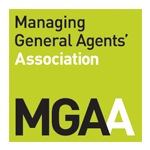Never wrestle with a pig
…said George Bernard Shaw, “…because you’ll both get dirty, and the pig likes it.” What if the pig is Peppa Pig and Vladimir Putin is the wrestler? We’re about to find out in a curious twist to intellectual property law levered by the Russian state.
We refer, of course, to last week’s ruling in the Russian courts allowing an entrepreneur to continue using the Hasbro Inc. “Peppa Pig” and “Daddy Pig” trademarks, without pay or the company’s consent. The court justified this ruling given the sanctions imposed by the UK and other Western countries.
The war in Ukraine just escalated.
A ham-fisted counter?
Or is it, as some commentators say, Russia legalising piracy and intellectual property theft on a grand scale? Time to delve deeper.
On March 7th, 2022, The Russian Government adopted a decree allowing Russian companies and individuals in Russia to use inventions, designs, trademarks held by so-called “unfriendly countries” without their consent and without paying compensation.
The decree claims its validity from provisions in the Russian Civil Code which gives the government such rights and powers as contained in the decree, in case of extreme necessity, defence of the state, protection of citizen’s life and health, to allow such appropriation of intellectual property rights at short notice for “proportional” compensation – envisaged by the decree as 0% compensation.
The “unfriendly countries” list currently runs to 48.
Side-sneers aside, as to whether the continuation of the McDonald’s brand and franchise is really protecting Russian’s health, this looks and feels like an all-out IP war.
A pig’s breakfast
Just how did we get here? It started with a barrage of sanctions imposed by the West. To trade in Russia is now commonly seen as toxic. Major brands and services have shut down their Russian operations. Including, PayPal, TikTok, McDonald’s, Coca-Cola, Shell, Apple and Starbucks. The list goes on. The response by the Russians is simple, it’s intended to allow the use of these brands and franchise outlets for the benefit of the Russian people and to allow Russian-based companies to continue to operate.
According to the Russian state ministry:
“This will smooth out the impact on the market of breaks in supply chains, as well as the shortage of goods and services that arose due to new sanctions by Western countries.”
It can reasonably be assumed, that state-seizure of leases and freeholds of these “unfriendly” brands and businesses is, conceptually, merely a stone’s throw away.
Some animals are more equal than others
There is evidence some Russians disagree with the current ‘fortress Russia’ approach. One such individual is Russian mining billionaire Vladimir Potanin. He has warned Putin against seizing control of assets owned by foreign firms that have left Russia. He argues that to do so, drags Russia back to the time of the Bolshevik revolution. He claims, it would undermine investors’ confidence and slam the door on Russia’s carefully cultivated (pre-invasion of Ukraine) economic position and a return to trade with the West. He could be right.
The tectonic plates upon which East-West trade sit, appear forever changed. Since 1917 intellectual property has, arguably, become more valuable than real property. Seizure of IP is seizure of assets. Full-stop. There is no discernible difference in the modern world.
As Josh Gerben an intellectual property lawyer told the Washington Post:
This is…“just another example of how [Putin] has forever changed the relationship that Russia will have with the world”.
Owners of IP operating in Russia are dismayed. Of that, there is no doubt. Butit’s still uncertain whether the decree applies to patents and if so to what extent. And how long the decree will stay in place. There is still time to reverse some of the predicted negative impact. Just.
As Russia squeals…
However unpalatable it might be to draw on historical comparisons, we will do so for the sake of balance and completeness. It should be noted that during WW2, the U.S. government seized tens of thousands of foreign-owned patents and other forms of intellectual property. The agency responsible was the Office of the Alien Property Custodian (APC). Its function was to disclose technical information from seized patents and make it available to American industries for use in the war effort.
Bayer lost its trademark rights to Aspirin under the 1919 Treaty of Versailles following the German defeat in WW1.
Surprised? We shouldn’t be.
IP is most definitely a casualty of war. And, occasionally, the spoils of war.
Murray Fairclough
Development Underwriter
OPUS Underwriting Limited
+44 (0) 203 920 9985
underwriting@opusunderwriting.com
Researched by Ben Fairclough







